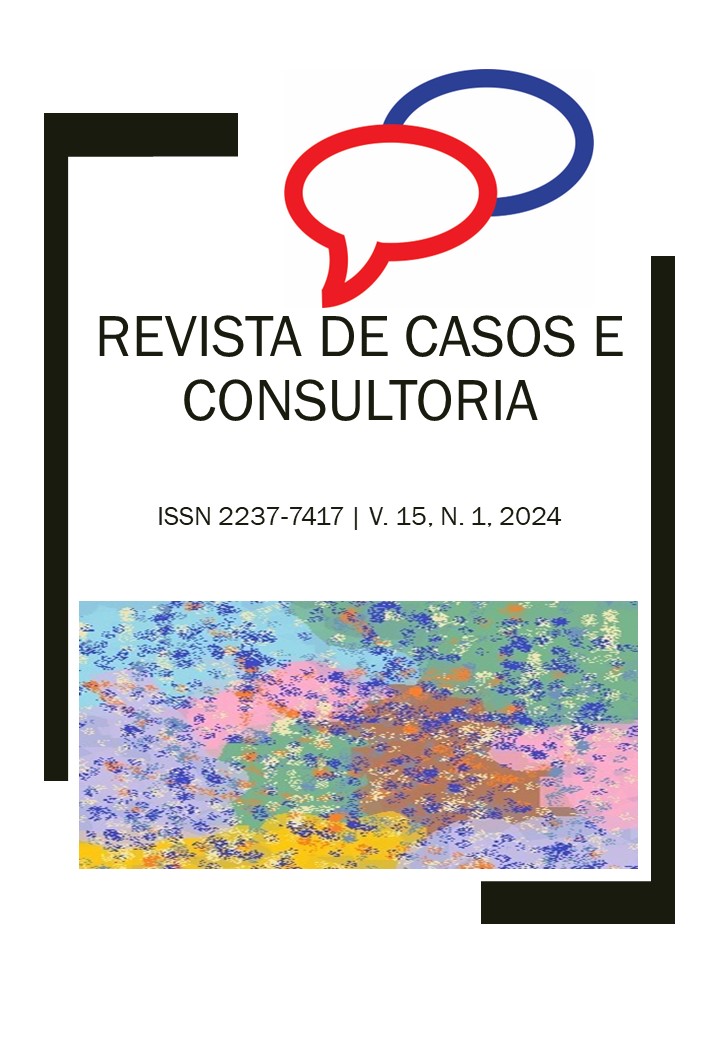The influence of self-regulation of learning on performance in the programming logic discipline
Keywords:
Self-regulation of Learning, Study Administration, Performance PredictionAbstract
The subject of Logic Programming (LOP) has been the focus of several studies, as it is one of the themes of education 4.0 and due to its high failure rate. As self-regulation of learning has a direct influence on students' academic performance, understanding the teaching-learning process and self-regulation in the subject is essential to mitigate this failure and, consequently, reduce dropouts. This article aims to analyze the relationship between individual skills (self-regulation of learning, tie management and study conditions) and performance in the LOP subject, in face-to-face teaching, in classes of the Bachelor of Science and Technology at the Federal University of Rio Grande do Norte, in the second half of 2019. To do so, we based ourselves on contributions from studies by Zimmerman (1989,1990), Schunk (2005), among others. The research is quantitative in nature, in which data collection was carried out through an online questionnaire, to obtain demographic and study self-regulation data. The results showed that students do not care about deepening the content studied, do not choose suitable environments for learning and there is a lack of habit and discipline in their studies, explaining the large number of failures (failure) in the subject.
Downloads
References
AMOROSO, Danilo. O que é Web 2.0? Disponível em: http://www.tecmundo.com.br/web/183-o-que-e-web-2-0-. Acesso em: 12 mar. 2016.
BANDURA, A.; AZZI, R. G.; POLYDORO, S. A. et al. Teoria social cognitiva: conceitos básicos. Porto Alegre: Artmed, 2008.
BOEKAERTS, M. Self-regulated learning: A new concept embraced by researchers, policy makers, educators, teachers, and students. Learning and Instruction, v. 7, n. 2, p. 161-186, 1997.
BOUFFARD, T.; VEZEAU, C.; BORDELEAU, L. A developmental study of the relation between combined learning and performance goals and students' self‐regulated learning. British Journal of Educational Psychology, v. 68, n. 3, p. 309-319, 1998.
CHENG, C. K. E. The role of self-regulated learning in enhancing learning performance. In: IEEE International Conference on Advanced Learning Technologies (5th: 2005: Kaohsiung, Taiwan). Proceedings... Los Alamitos: IEEE Computer Society, 2005. p. 383-387.
CORNO, L.; MANDINACH, E. B. The role of cognitive engagement in classroom learning and motivation. Educational Psychologist, v. 18, p. 88-108, 1983.
FERREIRA, M. A.; CASAGRANDE, L. S. Espaços, existências e resistências: mulheres na pós-graduação da Tecnológica. Revista Periódicus, v. 1, n. 11, p. 404-430, 2019.
GANGA, Gilberto Miller Devós. Trabalho de conclusão de curso (TCC) na engenharia de produção. São Paulo: Atlas, 2012.
GIRAFFA, M. M.; DA COSTA MORA, M. Evasão na disciplina de algoritmo e programação: um estudo a partir dos fatores intervenientes na perspectiva do aluno. In: Congressos CLABES, 2013.
GOHN, Maria da Glória. Abordagens Teóricas no Estudo dos Movimentos Sociais na América Latina. Caderno CRH, v. 21, n. 54, p. 439-455, set./dez. 2008.
KUMAR, V. et al. Effects of self-regulated learning in programming. In: IEEE International Conference on Advanced Learning Technologies (5th: 2005: Kaohsiung, Taiwan). Proceedings... Los Alamitos: IEEE Computer Society, 2005. p. 383-387.
LEY, K.; YOUNG, D. B. Instructional principles for self-regulation. Educational Technology Research and Development, v. 49, n. 2, p. 93-103, 2001.
MANZATO, A. J.; SANTOS, A. B. A elaboração de questionários na pesquisa quantitativa. Departamento de Ciência de Computação e Estatística–IBILCE–UNESP, 2012. 17 p.
MARCONI, M. D. A.; LAKATOS, E. M. Fundamentos de metodologia científica-5ª ed. São Paulo: Atlas, 2003.
PASCOAL, T. A.; BRITO, D. M.; RÊGO, T. G. Uma abordagem para a previsão de desempenho de alunos de Computação em disciplinas de programação. In: Nuevas Ideas en Informática Educativa TISE, 2015. p. 454-458.
PINTO, L. A. S.; ARAÚJO, I. A. F.; SANTANA JÚNIOR, O. V. de. Transformando o aprendizado: uma proposta de um bot educacional para auxiliar o professor - RN. Revista de Casos e Consultoria, [S. l.], v. 15, n. 1, p. e33870, 2024.
PINTRICH, P. R. A conceptual framework for assessing motivation and self-regulated learning in college students. Educational Psychology Review, v. 16, n. 4, p. 385-407, 2004.
PRIETCH, S. S.; PAZETO, T. A. Estudo sobre a Evasão em um Curso de Licenciatura em Informática e Considerações para Melhorias. WEIBASE, Maceió/AL, 2010.
PRODANOV, C. C.; DE FREITAS, E. C. Metodologia do trabalho científico: métodos e técnicas da pesquisa e do trabalho acadêmico-2ª ed. Novo Hamburgo: Editora Feevale, 2013.
RYAN, R. M.; DECI, E. L. Self-determination theory and the facilitation of intrinsic motivation, social development, and wellbeing. American Psychologist, v. 55, p. 68-78, 2000.
SCHUNK, D. H. Commentary on self-regulation in school contexts. Learning and Instruction, v. 15, n. 2, p. 173-177, 2005.
SCHUNK, D. Social Cognitive Theory and Self-regulated Learning. In: SCHUNK, D.; ZIMMERMAN, B. J. (Eds.) Self-regulated learning and academic achievement: theoretical perspectives. 2. ed. New York: Lawrence Erlbaum Associates, 2001. p. 125-151.
SIGAA - Sistema Integrado de Gestão de Atividades Acadêmicas. último acesso: 26 out. 2019. Disponível em: https://sigaa.ufrn.br/sigaa/public/home.jsf.
TAMANDARÉ, B. L. et al. Discurso de masculinidade e feminilidade presentes no curso de Engenharia Civil do IFBA-Campus Eunápolis. Pindorama, v. 8, n. 8, p. 14-14, 2019.
ZIMMERMAN, B. J. A social cognitive view of self-regulated academic learning. Journal of Educational Psychology, v. 81, n. 3, p. 329, 1989.
ZIMMERMAN, B. J.; PONS, M. M. Development of a structured interview for assessing student use of self-regulated learning strategies. American Educational Research Journal, v. 23, n. 4, p. 614-628, 1986.
Downloads
Published
How to Cite
Issue
Section
License
Copyright (c) 2024 Luana Fernandes dos Santos, Igor Rosberg de Medeiros Silva, Henrique Rocha de Medeiros, Vilson Rodrigues Câmara Neto, Lucas Augusto Spinola Pinto, Ian Antonio Fonseca Araújo, Orivaldo Vieira de Santana Júnior

This work is licensed under a Creative Commons Attribution 4.0 International License.

 Português (Brasil)
Português (Brasil) English
English Español (España)
Español (España)